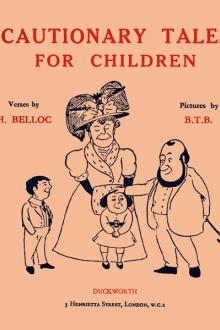Wieland; Or, The Transformation: An American Tale, Charles Brockden Brown [reading diary .txt] 📗

- Author: Charles Brockden Brown
Book online «Wieland; Or, The Transformation: An American Tale, Charles Brockden Brown [reading diary .txt] 📗». Author Charles Brockden Brown
My brother turned slowly his eyes, and fixed them upon Carwin. Every joint in the frame of the latter trembled. His complexion was paler than a ghost's. His eye dared not meet that of Wieland, but wandered with an air of distraction from one space to another.
"Man," said my brother, in a voice totally unlike that which he had used to me, "what art thou? The charge has been made. Answer it. The visage—the voice—at the bottom of these stairs—at the hour of eleven—To whom did they belong? To thee?"
Twice did Carwin attempt to speak, but his words died away upon his lips. My brother resumed in a tone of greater vehemence—
"Thou falterest; faltering is ominous; say yes or no: one word will suffice; but beware of falsehood. Was it a stratagem of hell to overthrow my family? Wast thou the agent?"
I now saw that the wrath which had been prepared for me was to be heaped upon another. The tale that I heard from him, and his present trepidations, were abundant testimonies of his guilt. But what if Wieland should be undeceived! What if he shall find his acts to have proceeded not from an heavenly prompter, but from human treachery! Will not his rage mount into whirlwind? Will not he tare limb from limb this devoted wretch?
Instinctively I recoiled from this image, but it gave place to another. Carwin may be innocent, but the impetuosity of his judge may misconstrue his answers into a confession of guilt. Wieland knows not that mysterious voices and appearances were likewise witnessed by me. Carwin may be ignorant of those which misled my brother. Thus may his answers unwarily betray himself to ruin.
Such might be the consequences of my frantic precipitation, and these, it was necessary, if possible, to prevent. I attempted to speak, but Wieland, turning suddenly upon me, commanded silence, in a tone furious and terrible. My lips closed, and my tongue refused its office.
"What art thou?" he resumed, addressing himself to Carwin. "Answer me; whose form—whose voice—was it thy contrivance? Answer me."
The answer was now given, but confusedly and scarcely articulated. "I meant nothing—I intended no ill—if I understand—if I do not mistake you—it is too true—I did appear—in the entry—did speak. The contrivance was mine, but—"
These words were no sooner uttered, than my brother ceased to wear the same aspect. His eyes were downcast: he was motionless: his respiration became hoarse, like that of a man in the agonies of death. Carwin seemed unable to say more. He might have easily escaped, but the thought which occupied him related to what was horrid and unintelligible in this scene, and not to his own danger.
Presently the faculties of Wieland, which, for a time, were chained up, were seized with restlessness and trembling. He broke silence. The stoutest heart would have been appalled by the tone in which he spoke. He addressed himself to Carwin.
"Why art thou here? Who detains thee? Go and learn better. I will meet thee, but it must be at the bar of thy Maker. There shall I bear witness against thee."
Perceiving that Carwin did not obey, he continued; "Dost thou wish me to complete the catalogue by thy death? Thy life is a worthless thing. Tempt me no more. I am but a man, and thy presence may awaken a fury which may spurn my controul. Begone!"
Carwin, irresolute, striving in vain for utterance, his complexion pallid as death, his knees beating one against another, slowly obeyed the mandate and withdrew.
Chapter XXV
A few words more and I lay aside the pen for ever. Yet why should I not relinquish it now? All that I have said is preparatory to this scene, and my fingers, tremulous and cold as my heart, refuse any further exertion. This must not be. Let my last energies support me in the finishing of this task. Then will I lay down my head in the lap of death. Hushed will be all my murmurs in the sleep of the grave.
Every sentiment has perished in my bosom. Even friendship is extinct. Your love for me has prompted me to this task; but I would not have complied if it had not been a luxury thus to feast upon my woes. I have justly calculated upon my remnant of strength. When I lay down the pen the taper of life will expire: my existence will terminate with my tale.
Now that I was left alone with Wieland, the perils of my situation presented themselves to my mind. That this paroxysm should terminate in havock and rage it was reasonable to predict. The first suggestion of my fears had been disproved by my experience. Carwin had acknowledged his offences, and yet had escaped. The vengeance which I had harboured had not been admitted by Wieland, and yet the evils which I had endured, compared with those inflicted on my brother, were as nothing. I thirsted for his blood, and was tormented with an insatiable appetite for his destruction; yet my brother was unmoved, and had dismissed him in safety. Surely thou wast more than man, while I am sunk below the beasts.
Did I place a right construction on the conduct of Wieland? Was the error that misled him so easily rectified? Were views so vivid and faith so strenuous thus liable to fading and to change? Was there not reason to doubt the accuracy of my perceptions? With images like these was my mind thronged, till the deportment of my brother called away my attention.
I saw his lips move and his eyes cast up to heaven. Then would he listen and look back, as if in expectation of some one's appearance. Thrice he repeated these gesticulations and this inaudible prayer. Each time the mist of confusion and doubt seemed to grow darker and to settle on his understanding. I guessed at the meaning of these tokens. The words of Carwin had shaken his belief, and he was employed in summoning the messenger who had formerly communed with him, to attest the value of those new doubts. In vain the summons was repeated, for his eye met nothing but vacancy, and not a sound saluted his ear.
He walked to the bed, gazed with eagerness at the pillow which had sustained the head of the breathless Catharine, and then returned to the place where I sat. I had no power to lift my eyes to his face: I was dubious of his purpose: this purpose might aim at my life.
Alas! nothing but subjection to danger, and exposure to temptation, can show us what we are. By this test was I now tried, and found to be cowardly and rash. Men can deliberately untie the thread of life, and of this I had deemed myself capable; yet now that I stood upon





Comments (0)